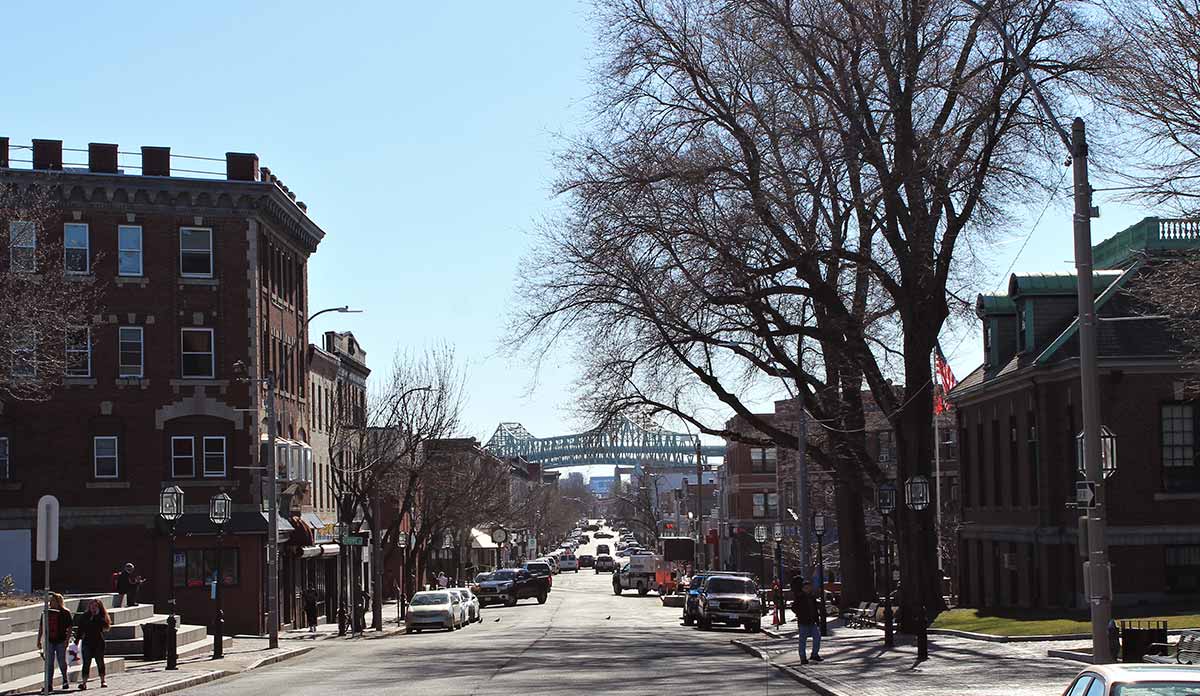Take a sharp right onto Fourth Street off of Boston’s Tobin Bridge going north, and you’ll immediately find yourself in Chelsea, sandwiched between a tight row of houses. If you drive up a few streets to Broadway you’ll soon see people crowding the sidewalks, and a police car parked in front of City Hall.
For Boston locals, Chelsea does not have the best reputation. Known for a high population of residents with substance use disorder, Chelsea has not been looked to as a model of public health by other cities. But the Chelsea Hub, a collaboration between the police department and public safety, health, and social services is changing that. Chelsea’s old reputation “is not today’s reality,” said City Manager, Thomas Ambrosino.
Chelsea was one of eight U.S. communities to win a $25,000 Robert Wood Johnson Foundation Culture of Health Prize in 2017. According to Ambrosino, “we wowed them with the level of collaboration” within the city. Chelsea’s Hub, based on a Canadian model, facilitates that collaboration.
Daniel Cortez, Community Engagement Specialist at the Chelsea Police Department, oversees the Hub’s weekly meetings. “I play the role of cheerleader sometimes,” said Cortez. Each Thursday morning, he and fifteen or so colleagues (police officers, child protective services and city code enforcement agents, social workers, substance-use counselors and recovery coaches, and medical center staff), gather around a table at the Chelsea Police Department and talk about individuals who need access to their services.
While each of these services existed before the Hub came to Chelsea in 2015, they didn’t collaborate as much in the past. “The community came to together, all service providers,” said Jason Owens, a community liaison with Roca Inc., a Chelsea-based organization that helps young men and women at risk of incarceration get back to school or work. “There are no more silos in our community so we can better serve our city.”
The Chelsea Hub provides a way for people from different agencies to meet each other and learn about new ways to deliver services and serve the community efficiently, according to Cortez.
The Hub provides a way for people from different agencies to meet each other and learn about new ways to deliver services and serve the community efficiently, according to Cortez. “We’re able to mobilize and deliver services faster than ever before,” he said.
For law enforcement, the Hub means a new approach to public safety. Before their close relationship with social services took shape, the police would respond to the same houses and the same people repeatedly. They would address the immediate crime, but the root of the issue remained. Now, “they know there’s a place someone can be referred to,” said Cortez. “I think the police feel like they have more tools in their toolbox.”
Because the program is so new, Chelsea only has anecdotal reports of success. But police departments in Canada using this method have reported that 79% of their interventions reach closure in two weeks or less. In one district, an evaluation found a significant drop in violent and property crime rates.
In addition to the Hub, Chelsea’s police offer addiction services and youth community outreach programs. “Our police department does a good job of engendering trust in the community,” said Ambrosino. Their addiction recovery initiative, based on the Gloucester Police Department’s ANGEL program, aims to prevent overdoses and encourage utilization of treatment services. The department also hosts a youth athletic league, summer internships for high school students, a community criminal justice class for high school students, and a youth police initiative that allows teenagers and officers to build positive relationships.
Walking down Broadway, jostling shoulders with people on the sidewalks, you can see the Tobin Bridge in the distance. This structure connecting Boston and Chelsea looms over the smaller city. Yet despite its size, the city of Chelsea has given its residents resources comparable to its larger neighbor, making collaboration between governmental service providers central to enriching the public health of the community.
Photo: Jacqueline Rocheleau












